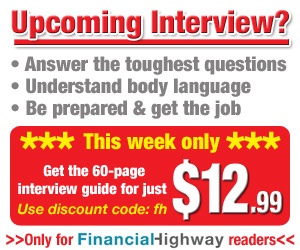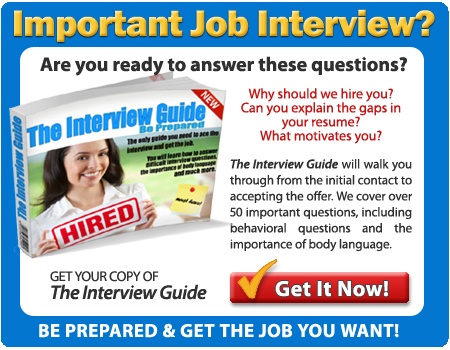- 15shares
- Facebook10
- Twitter2
- Pinterest1
- Google+2
Q: What is a suggestion you’ve made at work that was implemented?
This is a surprisingly common interview question, so make sure that you’ve prepared an honest answer for it. The point of this question is to show that you are able to contribute to the organization in a meaningful way. If you have never given a direct suggestion that was implemented, select an example of how a project or team effort that you were a part of led to a positive change at work. For example, you might explain that your participation in an eco-friendly campaign helped moved the company forward with greener actions.
Q: Can you describe a situation when …
The specifics of this question may vary, but the gist of it is very common to hear in interviews. For example, a common interview question that falls into this category is, “can you describe a situation when you had a conflict with a co-worker and how you resolved it?” The main stumbling block people come up against when answering this question is that they feel like they are “put on the spot” and can’t come up with an adequate scenario. There are two key things to help counter this problem. Number one, remember that the actual facts of the situation don’t matter. The value of your answer lies in your ability to demonstrate that you can solve conflict (or overcome adversity, or whatever the specific intent of the question implies). Number two, practice! Have a friend or family member ask you multiple questions of this nature so that you can practice what your answers will be. Above all else, don’t say, “I don’t know”!
Q: What are the most difficult decisions for you to make?
This is an entirely different question, but it’s tricky because it’s basically another way of asking how you deal with conflict and stress at work. You can be honest in saying that something is difficult for you but quickly explain how you deal with that. For example, you might say that it is difficult for you to decide that it’s time to fire someone but that you weigh all of the pros and cons and look at the situation objectively so that you can make the right decision. Regardless of how this question is asked, you should provide a question related to work and not something from your personal life.
Q: What would your previous co-workers say about you?
It is important to realize that this question has nothing to do with your co-workers. The question really is, “what are your best traits as someone to work with”. You want to answer in a manner that reflects your best traits. If you are preparing for an interview in advance, you may want to actually ask some of your former co-workers this question so that you can get a sense of what they see as their strengths. Don’t be afraid to quote these people in your interview and even let the employer know that you were actually told this information by someone you worked with.
Q: What is the most difficult thing about working with you?
It is always hard to answer questions about your flaws since an interview is designed to bring out your best qualities. The key is to heavily de-emphasize the flaw. You want to say what is most difficult for you and what you’ve done to work on that problem. For example, you don’t want to say, “I’m always upset if I don’t do something perfectly” but rather should say, “I often struggle with perfectionism, but I am learning to take constructive criticism so that this isn’t a problem in the workplace.”
Q: What is your greatest strength as an employee?
Be honest about this one. Everyone has something that they really excel at. Before the interview, identify what this is. Identify how it relates to the position that you’re applying for, your field and the company that you want to work with. Come up with an example of how you’ve used this strength in the past in a relevant way. Answer the question fully. Don’t worry that you’re bragging; this question is designed to allow you to brag, and you won’t receive bad feelings for going ahead with that.
Q: What do you do to deal with stress?
Another common way that this same question is phrased is “how do you handle working under pressure?” Ideally you will be able to offer a creative explanation for how you handle stressful situations. For example, you may say that you take five minutes to play Sudoku and calm down or that you keep your best reference letter in your wallet to re-read when you need an emotional boost. However, it’s perfectly acceptable to simply say that you handle stress well and to give an example of an experience that shows this. Never say that you don’t handle stress well, even if you don’t! Provide an answer that shows that you at least know how someone should handle stress properly, even if you haven’t quite achieved a zen state yourself.
Q: Would you rather be liked or feared?
The best answer to this question is: “Neither, I’d rather be respected”. This shows that you aren’t afraid to be a leader and that you aren’t going to slack off just to get along with everyone. It also states that you’re not a domineering person who is going to turn people off with inappropriate aggression.
Q: Describe your management style.
Obviously, you’ll only be asked this question if you’re applying for a management position, but it comes up in nearly all interviews for those positions. If you know what the preferred management style of the company is and you embody that, then by all means say it. Otherwise, you should say that you’re aware of different management styles and believe that different options suit different situations so you’re willing to be flexible to meet the needs of the situation.
Q: What motivates you?
Here the employer is looking to find out what type of rewards you would expect from them in order to have job satisfaction. You want to stay away from mentioning monetary rewards here. Ideally, you should select intrinsic rewards that show that you don’t need a pat on the back for every good job you do. For example, you might say that you’re motivated by meeting a challenge or that you’re motivated by working well with your team members and producing a high-quality product.



